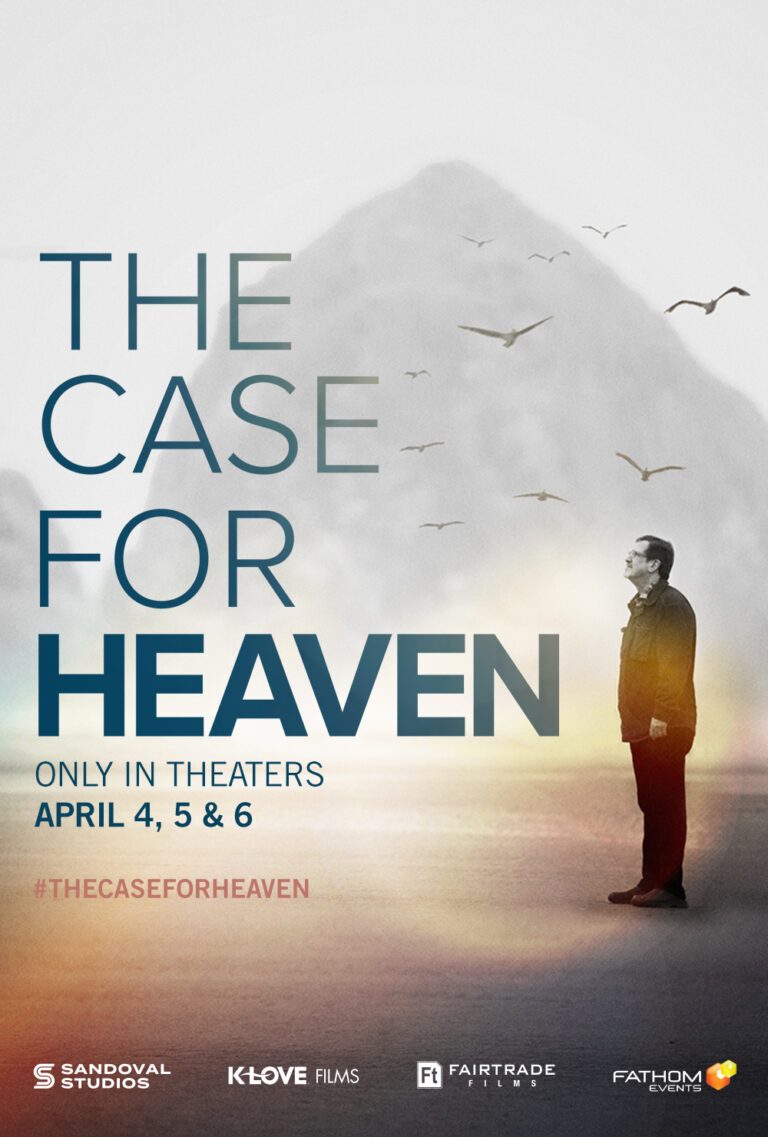
Netflix’s TESTAMENT: THE STORY OF MOSES Removes ‘Superhuman’ Stigma
By Movieguide® Contributor
TESTAMENT: THE STORY OF MOSES’s creators have sought to eradicate the stigma that makes Moses seem “superhuman” in their new docudrama.
“TESTAMENT: THE STORY OF MOSES seeks to shed light on the inner life and personal struggles of the iconic biblical figure — elements often overshadowed in traditional retellings of his story — in an effort to spark meaningful conversations about the human condition, according to showrunners,” the Christian Post said.
Movieguide®’s review of TESTAMENT: THE STORY OF MOSES reads:
TESTAMENT: THE STORY OF MOSES is a three-part documentary series on Netflix, It tells the story of Moses and the Exodus in dramatic re-enactments. It goes through Moses’ early life in the court of the Pharoah, followed by his escape into the Land of Midian, where he meets Jethro and his wife Zipporah,, Jethro’s daughter. Then, comes the burning bush with God giving Moses His instructions, the return to Egypt, and the 10 plagues against Egypt when the new Pharoah refuses to let God’s people go. The Pharoah briefly relents, and the Hebrews leave Egypt, but Pharaoh changes his mind, only to have his troops drown in the Red Sea. Commentaries by Christian, Jewish and Muslim leaders, scholars and experts periodically follow the dramatic re-enactments.
The dramatic re-enactments in TESTAMENT: THE STORY OF MOSES are well produced. However, the commentaries slow down the miniseries. They also contain some extra-biblical perspectives, including some feminism, determinism and slight misrepresentations about God is. So, MOVIEGUIDE® advises caution for younger children, although TESTAMENT: THE STORY OF MOSES is generally an interesting, ambitious, watchable miniseries.
“I think of PRINCE OF EGYPT or TEN COMMANDMENTS, and those are all great films, but it seems like Moses is almost presented as superhuman,” Kelly McPherson, executive producer, told The Christian Post.
While Moses does many heroic things, his strength comes from God. The cast and crew do their best to show that, emphasizing Moses’s “human” experiences.
“Put yourself in his shoes; there’s a burning bush and it tells you to go do something which is virtually impossible to do,” McPherson said. “We liked the idea of, ‘How did he find the wherewithal to do this?’ Obviously, he was inspired by God, but how did he find the courage to do this?”
“We liked the fact that he was a person with flaws; he had to overcome a lot and what was, by many accounts, a tragic childhood,” McPherson continued. “We liked making him more human. He does things that are super heroic, yes, but there was a side of him that was very, very human and very, very flawed at the same time.”
The series’ creators also wanted Moses’ and God’s profound connection to come through.
“We really liked the fact that Moses had these real dialogues with God, and they would intensify. It doesn’t mean they’re at odds, it just means that they had this intimate relationship…that was the centerpiece of the whole thing,” McPherson said.
“I’m not saying they were equals,” he added, “but there was this give and take in their conversations. I was really fascinated to learn that because I never had thought of that relationship in that way.”
God listened to Moses’s ideas. McPherson used Exodus 32:14 as an example of their “give and take” conversations.
“God is fed up with the Israelites after the idols and everything, and He’s like, ‘We’re going to start over.’ Moses talks Him out of it,” McPherson said. “I think that’s something that a lot of people might not realize, there was a back and forth, and God listened to Moses, just like Moses listened to God.”
The historical docudrama is part scripted enactments and part interviews with experts. It welcomes perspectives from Christians, Muslims and Jews as it explores Moses’s history.
“Most of the accounts were more similar than what we thought from different faith backgrounds,” McPherson said. “But we really tried to let Moses’ motivations drive the story…he kind of transcends any one religion or set of beliefs. He’s beloved by all these different religions.”
“One expert who’s written a biography of Moses and then a Christian pastor shared with us how they’re really still intrigued by Moses relationship with God,” McPherson said. “One of them said, half-jokingly, ‘Sometimes they would bicker with each other like an old married couple.’”
The Bible contains the “most amazing stories ever told,” and McPherson wanted audiences to be touched, entertained and inspired.
“They’re archetypes for all stories, even in the secular world,” McPherson said. “They’re the basis for so many of the stories that people tell.”
Executive producer Emre Sahin posits that the Bible’s stories, whether read in the book itself or seen on a screen, will help bring meaning and understanding to those who seek it.
He said, “Bible stories are the foundation of so much of humanity and society. We go through chapters in humanity and each successive one tries to understand, interpret or be inspired by Bible stories. I think we’re going through another one of those right now, whether that’s triggered by kind of a state of the world or a growing movement. “
On April 3, the Pittsburgh Jewish Chronicle noted that the documentary was a hit, as it was streamed 13.5 million times in the first five days of its release on March 27.



 - Content:
- Content: 
